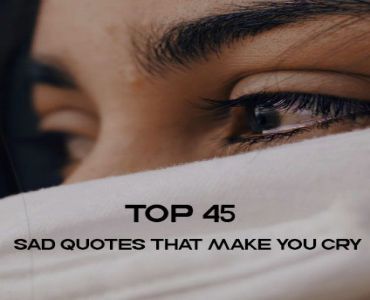Who is Charles Darwin
Charles Robert Darwin was a British naturalist and biologist known for his theory of evolution and his understanding of the process of natural selection. In 1831, he embarked on a five-year voyage around the world on the HMS Beagle, during which time his studies of various plants and an led him to formulate his theories. In 1859, he published his landmark book, On the Origin of Species.
Charles Darwin was born on February 12, 1809, in the tiny merchant town of Shrewsbury, England. A child of wealth and privilege who loved to explore nature, Darwin was the second youngest of six kids.
Darwin came from a long line of scientists: His father, Dr. R.W. Darwin, was a medical doctor, and his grandfather, Dr. Erasmus Darwin, was a renowned botanist. Darwin’s mother, Susanna, died when he was only eight years old.
Charles Darwin Quotes
1. I am not apt to follow blindly the lead of other men.
2. A man who dares to waste one hour of time has not discovered the value of life.
3. Ignorance more frequently begets confidence than does knowledge: it is those who know little, not those who know much, who so positively assert that this or that problem will never be solved by science.
4. Thus, from the war of nature, from famine and death, the most exalted object which we are capable of conceiving, namely, the production of the higher animals, directly follows. There is grandeur in this view of life, with its several powers, having been originally breathed into a few forms or into one; and that, whilst this planet has gone cycling on according to the fixed law of gravity, from so simple a beginning endless forms most beautiful and most wonderful have been, and are being, evolved.
5. If the misery of the poor be caused not by the laws of nature, but by our institutions, great is our sin.
6. The love for all living creatures is the most noble attribute of man.
7. We stopped looking for monsters under our bed when we realized that they were inside us.
8. If I had my life to live over again, I would have made a rule to read some poetry and listen to some music at least once every week.
9. The mystery of the beginning of all things is insoluble by us; and I for one must be content to remain an agnostic.
10. It is not the strongest of the species that survives,
not the most intelligent that survives.
It is the one that is the most adaptable to change.
11. The highest possible stage in moral culture is when we recognise that we ought to control our thoughts.
12. An American monkey, after getting drunk on brandy, would never touch it again, and thus is much wiser than most men.
13. Intelligence is based on how efficient a species became at doing the things they need to survive.
14. Blushing is the most peculiar and most human of all expressions.
15. …But I own that I cannot see as plainly as others do, and as I should wish to do, evidence of design and beneficence on all sides of us. There seems to me too much misery in the world. I cannot persuade myself that a beneficent and omnipotent God would have designedly created the Ichneumonidæ with the express intention of their feeding within the living bodies of Caterpillars, or that a cat should play with mice… I feel most deeply that the whole subject is too profound for the human intellect. A dog might as well speculate on the mind of Newton. Let each man hope and believe what he can.
16. One general law, leading to the advancement of all organic beings, namely, multiply, vary, let the strongest live and the weakest die.
17. Besides love and sympathy, animals exhibit other qualities connected with the social instincts which in us would be called moral.
18. We must, however, acknowledge, as it seems to me, that man with all his noble qualities… still bears in his bodily frame the indelible stamp of his lowly origin.
18. In the long history of humankind (and animal kind, too) those who learned to collaborate and improvise most effectively have prevailed.
19. As man advances in civilization, and small tribes are united into larger communities, the simplest reason would tell each individual that he ought to extend his social instincts and sympathies to all members of the same nation, though personally unknown to him. This point being once reached, there is only an artificial barrier to prevent his sympathies extending to the men of all nations and races.
20. We can allow satellites, planets, suns, universe, nay whole systems of universe, to be governed by laws, but the smallest insect, we wish to be created at once by special act.
21. Nothing is easier than to admit in words the truth of the universal struggle for life, or more difficult–at least I have found it so–than constantly to bear this conclusion in mind.
22. Man selects only for his own good: Nature only for that of the being which she tends.
23. The following proposition seems to me in a high degree probable—namely, that any animal whatever, endowed with well-marked social instincts, the parental and filial affections being here included, would inevitably acquire a moral sense or conscience, as soon as its intellectual powers had become as well, or nearly as well developed, as in man. For, firstly, the social instincts lead an animal to take pleasure in the society of its fellows, to feel a certain amount of sympathy with them, and to perform various services for them.
24. If it could be demonstrated that any complex organ existed, which could not possibly have been formed by numerous, successive, slight modifications, my theory would absolutely break down. But I can find no such case.
25. Great is the power of steady misrepresentation.
26. I see no good reasons why the views given in this volume should shock the religious views of anyone.
27. Freedom of thought is best promoted by the gradual illumination of men’s minds which follows from the advance of science.
28. There is grandeur in this view of life, with its several powers, having been originally breathed by the Creator into a few forms or into one; and that, whilst this planet has gone cycling on according to the fixed law of gravity, from so simple a beginning endless forms most beautiful and most wonderful have been and are being evolved.
29. …for the shield may be as important for victory, as the sword or spear.
30. Man in his arrogance thinks himself a great work, worthy of the interposition of a deity. More humble, and I believe truer, to consider him created from animals.
31. But I am very poorly today & very stupid & I hate everybody & everything. One lives only to make blunders.
32. There is no fundamental difference between man and animals in their ability to feel pleasure and pain, happiness, and misery.
33. To kill an error is as good a service as, and sometimes even better than, the establishing of a new truth or fact.
34. I am not the least afraid to die.
35. It is always advisable to perceive clearly our ignorance.
36. But then with me the horrid doubt always arises whether the convictions of man’s mind, which has been developed from the mind of the lower animals, are of any value or at all trustworthy. Would any one trust in the convictions of a monkey’s mind, if there are any convictions in such a mind?
37. False facts are highly injurious to the progress of science, for they often endure long; but false views, if supported by some evidence, do little harm, for everyone takes a salutary pleasure in proving their falseness; and when this is done, one path towards error is closed and the road to truth is often at the same time opened.
38. We are not here concerned with hopes or fears, only with truth as far as our reason permits us to discover it.
39. To suppose that the eye with all its inimitable contrivances for adjusting the focus to different distances, for admitting different amounts of light, and for the correction of spherical and chromatic aberration, could have been formed by natural selection, seems, I confess, absurd in the highest degree…The difficulty of believing that a perfect and complex eye could be formed by natural selection , though insuperable by our imagination, should not be considered subversive of the theory.
40. The loss of these tastes [for poetry and music] is a loss of happiness, and may possibly be injurious to the intellect, and more probably to the moral character, by enfeebling the emotional part of our nature.
41. We will now discuss in a little more detail the Struggle for Existence.
42. we are always slow in admitting any great change of which we do not see the intermediate steps.
43. For my own part I would as soon be descended from that heroic little monkey, who braved his dreaded enemy in order to save the life of his keeper; or from that old baboon, who, descending from the mountains, carried away in triumph his young comrade from a crowd of astonished dogs—as from a savage who delights to torture his enemies, offers up bloody sacrifices, practices infanticide without remorse, treats his wives like slaves, knows no decency, and is haunted by the grossest superstitions.
44. At some future period, not very distant as measured by centuries, the civilised races of man will almost certainly exterminate and replace throughout the world the savage races. At the same time the anthropomorphous apes, as Professor Schaaffhausen has remarked, will no doubt be exterminated. The break will then be rendered wider, for it will intervene between man in a more civilised state as we may hope, than the Caucasian and some ape as low as a baboon, instead of as at present between the negro or Australian and the gorilla.
45. Nevertheless so profound is our ignorance, and so high our presumption, that we marvel when we hear of the extinction of an organic being; and as we do not see the cause, we invoke cataclysms to desolate the world, or invent laws on the duration of the forms of life!
46. The very essence of instinct is that it’s followed independently of reason.
47. A scientific man ought to have no wishes, no affections, – a mere heart of stone.
48. Origin of man now proved.—Metaphysics must flourish.—He who understands baboon would do more towards metaphysics than Locke.
49. I think it inevitably follows, that as new species in the course of time are formed through natural selection, others will become rarer and rarer, and finally extinct. The forms which stand in closest competition with those undergoing modification and improvement will naturally suffer most.
50. Wherever the European had trod, death seemed to pursue the aboriginal.
51. But Natural Selection, as we shall hereafter see, is a power incessantly ready for action, and is immeasurably superior to man’s feeble efforts, as the works of Nature are to those of Art.
52. But we are not here concerned with hopes or fears, only with the truth as far as our reason allows us to discover it. I have given the evidence to the best of my ability; and we must acknowledge , as it seems to me, that man with all his noble qualities, with sympathy which feels for the most debased, with benevolence which extends not only to other men but to the humblest living creature, with his godlike intellect which has penetrated into the movements and constitution of the solar system – with all these exalted powers – Man still bears in his bodily frame the indelible stamp of his lowly origin.
53. The question of whether there exists a Creator and Ruler of the Universe has been answered in the affirmative by some of the highest intellects that have ever existed.
54. In conclusion, it appears that nothing can be more improving to a young naturalist, than a journey in distant countries.
55. We cannot fathom the marvelous complexity of an organic being; but on the hypothesis here advanced this complexity is much increased. Each living creature must be looked at as a microcosm–a little universe, formed of a host of self-propagating organisms, inconceivably minute and as numerous as the stars in heaven.
56. …I feel most deeply that the whole subject is too profound for the human intellect. A dog might as well speculate on the mind of Newton.— Let each man hope & believe what he can.
57. Natural Selection almost inevitably causes much Extinction of the less improved forms of life and induces what I have called Divergence of Character.
58. I could show fight on natural selection having done and doing more for the progress of civilization than you seem inclined to admit. Remember what risk the nations of Europe ran, not so many centuries ago of being overwhelmed by the Turks, and how ridiculous such an idea now is! The more civilised so-called Caucasian races have beaten the Turkish hollow in the struggle for existence. Looking to the world at no very distant date, what an endless number of the lower races will have been eliminated by the higher civilized races throughout the world.
59. It is often attempted to palliate slavery by comparing the state of slaves with our poorer countrymen: if the misery of our poor be caused not by the laws of nature, but by our institutions, great is our sin; but how this bears on slavery, I cannot see; as well might the use of the thumb-screw be defended in one land, by showing that men in another land suffered from some dreadful disease. Those who look tenderly at the slave owner, and with a cold heart at the slave, never seem to put themselves into the position of the latter; what a cheerless prospect, with not even a hope of change! picture to yourself the chance, ever hanging over you, of your wife and your little children — those objects which nature urges even the slave to call his own — being torn from you and sold like beasts to the first bidder! And these deeds are done and palliated by men, who profess to love their neighbours as themselves, who believe in God, and pray that his Will be done on earth! It makes one’s blood boil, yet heart tremble, to think that we Englishmen and our American descendants, with their boastful cry of liberty, have been and are so guilty…
60. Nothing is easier than to admit in words the truth of the universal struggle for life, or more difficult – at least I have found it so – than constantly to bear this conclusion in mind…We behold the face of nature bright with gladness…We do not see, or we forget, that the birds which are idly singing round us mostly live on insects and seeds, and are thus constantly destroying life.



